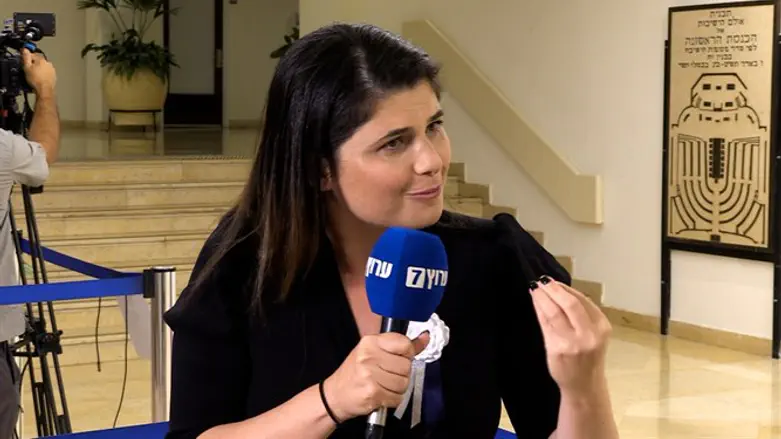
A few days ago, the Israeli government released its new outline for the resumption of studies in the next academic year, according to which children in older grades (eight and above) will only be permitted to learn in classrooms if at least 70% of the class has been vaccinated.
Speaking on Radio 103FM on Wednesday, MK Sharren Haskel (New Hope), head of the Knesset’s Education Committee, expressed her support of the new outline.
“I think that this new outline is a very good one, from a health standpoint,” she said. “It encourages young people to go and get vaccinated, and gives their parents an incentive to support that. It also makes the handling of the situation a local matter, rather than something decided upon in central government, and as we saw in previous lockdowns, that was the most effective way of doing things.”
Haskel stressed that, “People can choose to vaccinate or not to vaccinate based on all kinds of reasons, but they shouldn’t claim that there isn’t a price to pay for not vaccinating. I want to remind you that children, too, can die of coronavirus, and that’s why in ‘red’ cities, where contagion rates are high, we have to send unvaccinated children home to learn via Zoom.”
On Wednesday, the government signed an order permitting medical teams to enter schools during school hours in order to administer vaccines to children whose parents have agreed in writing to the vaccination.
Commenting on this policy, Haskel said, “I agree with it; I think that there are definitely advantages to doing it that way, especially among certain sectors. On the other hand, the Education Minister certainly has the interests of students in mind [when opposing the school-based vaccination program] and the points she has raised should be discussed—issues such as social pressure, for example. Even though at the end of the day, the parents of the students will be the ones deciding, we do need to address the question of whether students should be placed under emotional pressure [to consent to vaccination]. We have to weigh the pros and cons here—the health advantages as opposed to the emotional disadvantages.”
Asked to express her view on whether the new academic year should start on time, on September 1, or whether it should be pushed off until after the High Holiday season, Haskel replied that, “There are two issues here, one of which recurs every year when we take into account almost an entire month of festivals. This year, with the additional question of the epidemic, I don’t know that the nine days of learning in between the festivals is what will make or break the situation. I don’t have the answer to this question, but I think we should keep an open mind on what to decide, while consulting with the relevant experts from the Health and Education Ministries.”
Haskel did, however, admit that, “There could be advantages to moving the time of the long summer vacation so that it overlaps with the holiday period, in order to provide parents with quality time with their children. There definitely exist creative solutions to this problem, and I hope that one of them will be adopted.”
